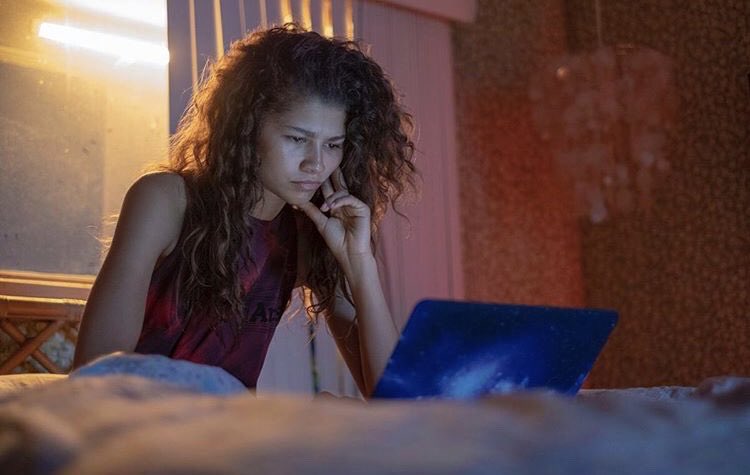Let’s Hit The Brakes On Binge-Watching
In recent years as streaming services have become the primary source of TV income, binge watching has hit an all-time high. Because most streaming services originally would release their original shows all in one sitting, viewers have gotten used to consuming all their content in one sitting, in one place.
Somedays, nothing is more perfect than pulling up a show on Netflix and binge watching it all day long. But because it’s become so ingrained in our culture, we fail to see the issue with binge watching. It has become normalized that it’s now seen as normal behavior, when really if it becomes a constant habit, there are negative side effects. Prolonged time in front of a screen is bad for our eyes and our brain. So now that streaming services are starting to change their release schedule to a more weekly “cable style” model, I think it’s better for everyone.
Services like Amazon Prime and HBO-Max have begun seasons by releasing the first few episodes, to drag the viewer in, then release the rest of the season weekly. It caused some uproar, because these streaming services are the reason we’re all so addicted to binge watching in the first place. But the upsides of weekly releases outweigh the cons.
Weekly releases generate more buzz and anticipation with viewers. It gives fans something to look forward to every week and get excited about what’s to come. It also helps build a community among fans with the same favorites. One example of this was “Euphoria Sundays”. Every Sunday millions of people sat down at the same time to watch the new episode and got online to discuss the updates. This model of viewing is more fun and allows for more reflection on what’s gone on leading to a greater appreciation and excitement for the show.
Binge watching for me can create a sense of isolation. It’s easy to waste a day watching episodes back to back, and most of the time I’m only half paying attention. It can be honestly overwhelming and I never feel good knowing I did nothing all day but watch six hours of the new season of ‘You’. Binge watching can honestly be an exhausting experience, both mentally and physically. Sitting for hours on end, staring at a screen, leads to eye strain, headaches and back pain. It’s also quite emotionally draining, as viewers are exposed to a constant stream of intense emotions and stimuli. In contrast, weekly releases provide a more manageable and sustainable viewing experience, allowing viewers to take breaks between episodes and process their emotions at a slower pace.
With all that being said, binge watching is popularized for a reason, and I’m not innocent of it. Binge watching can be convenient if you have a few hours to kill or want something to put on in the background. It can also be a great way to catch up on a show that’s already aired, or to rewatch a favorite show whenever you want. It’s also a good strategy for shows that have a strong narrative arc or a continuous storyline, as viewers don’t have to worry about being in suspense while waiting a week between episodes. But despite the many advantages there might be to this model, in the long run it’s not good for anyone, and it’s definitely not sustainable.
In sticking with weekly releases, these services will be able to maintain the relevance of their shows in modern culture. The streaming cycle goes so quickly now that you can watch a whole season in a week, and by the next week you’ll have moved onto something new. But with weekly releases, people are still on the hook. Every week new theories and discussions come out on social media in regards to that week’s episode which is both fun for the viewers, but also helps the network keep their show relevant, with more press coverage and higher ratings and viewership.
I think all streaming services are going to revert back to releasing new shows weekly. There will always be fully finished series available to binge-watch, but when it comes to new releases, the best way to consume the content is week by week.
Grace Campbell, FCRH ’25, is a new media digital design major from Northborough, Mass.

Grace Campbell is a senior from Northborough, Mass., majoring in new media and digital design and minoring in marketing. She spent Volume 105 as a digital...













































































































































































































